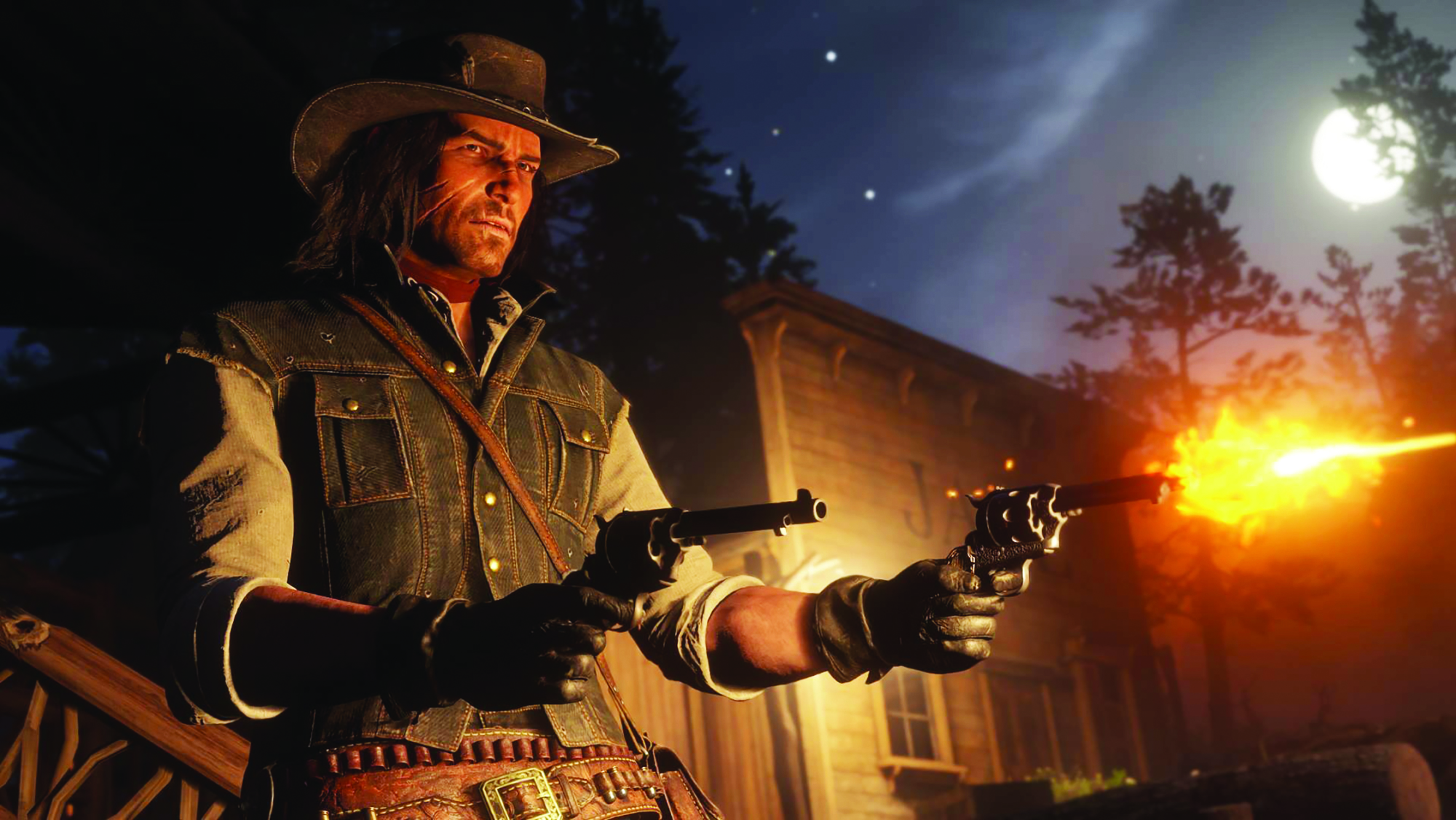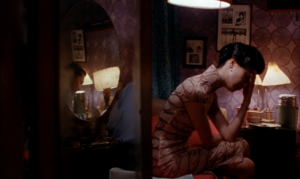For an open-world, blockbuster videogame, Red Dead Redemption 2 (RDR2) is a funny beast. The genre it falls under is usually defined by freedom and power fantasy – a ‘go anywhere, do anything’, frictionless kind of game. And while RDR2, a western set in the late 1800s, certainly has those elements (the scale of its navigable world is almost unparalleled, for example), its mechanics are also about as far from comprehensive, consequence-free liberty as you can imagine. Every act in RDR2 has a cost in time and labour for the player, including languorous animations and repetitive, almost intentionally tedious actions. This includes the need to keep your character fed, rested, fit, bathed and shaved – all of which, if neglected too long, will become problems. If I want to fulfil my social obligations to my companions in the game, too, I’ll need to put my back into it – chopping wood for my Wild West gang’s camp site, with each fall of the axe requiring a button press to trigger an animation that lasts several seconds. It’s hardly the mindless, instant-gratification-filled virtual world some might have imagined coming from Rockstar Games, the studio behind the infamous Grand Theft Auto series.
The theme of labour is relevant, because, as well as being the game of the month (at the time of writing) for public videogame discourse, RDR2 has also found itself at the heart of an ongoing and fiercely held debate about working conditions in the games industry. Rockstar titles – whether they’re Grand Theft Auto, L.A. Noire or RDR2 – are sold not just on freedom and power fantasy, but on detail. Their worlds seduce the player through an almost obscene amount of detail wholly inessential to the main attractions of the game. In RDR2, a hundred different varieties of plant and flower sway in the breeze while the player’s avatar casually crushes them underfoot; a bespoke, intricate animation plays when the character bends down to pick up his hat, knocked off in a bar fight; pages and pages and pages of backstory and contextual material in the guise of character journals and late-1800s shopping catalogues flesh out the world.
All these things are made with labour, and each of these examples constitutes weeks, months, even years of videogame workers’ lives. As I wrote in Metro 197, unionisation and working conditions have been the major, ongoing topic of conversation in the games industry over the past year, and Rockstar boss Dan Houser made a serious error of judgement when, in promoting RDR2, he claimed that his workers were putting in ‘100-hour weeks’ in order to get the game done on time. He added that it features 300,000 animations and 500,000 lines of dialogue.
The comment was tone-deaf. Houser was trying to appeal to the traditional videogame audience’s sense of awe in response to magnitude: here’s a game that has so much content, so much stuff, that it will take you fifty hours, seventy hours, 100 hours to complete. Here’s a game whose diegetic world is so large that it takes ten real minutes, twenty real minutes, half an hour to travel from one side to the other. Within a certain mindset, it’s an easy leap from that to flaunting how many hours of sleep your workers are forgoing in order to finish the game on time. There’s also a subtle suggestion that such profligacy equals passion, heart and quality from the developers.
But, of course, hours of excess labour are not measures of quality, but simply indices of mismanagement and exploitation. Houser playing to the crowd with his call for 100-hour working weeks might have resonated ten years ago, but today, with labour on every games-industry observer’s mind, it just seems to raise some fairly obvious questions. Would RDR2 really be that much worse if it didn’t contain hundreds of in-game character-journal pages that the vast majority of players won’t even look at? What about 150,000 animations instead, if it meant that Rockstar’s employees saw their families more often? Where is the line between deep, satisfying videogame content and an awful, exploitative work life for those who create it?
Thus, we return to the only real topic of conversation here: unionisation. As I noted in that earlier column, by and large, there has been no videogame workers’ union anywhere in the world that might otherwise negotiate and intervene when bosses start demanding unreasonable working hours. The lack of a union presence is now sure to change: public and industry pressure for unionisation has never been stronger. Even former International Game Developers Association head Kate Edwards has declared that unionisation is inevitable and necessary. This came after not just the RDR2 controversy, but a string of labour-exploitation flashpoints in 2018, including The Walking Dead developer Telltale Games laying off hundreds of workers without severance pay.
Another looming part of the battle is the public perception of videogame work. Players and the wider culture still often understand videogames as products that appear fully made on consoles, computers and store shelves. This is, in part, due to many decades of the industry itself obscuring the work of individual game designers in favour of bolstering the profile of brands. Nintendo, Sega, Electronic Arts – these have all taken precedence in games culture over even the biggest celebrity designers, let alone your average worker.
But videogames are made by people, and by their labour. The more widely this is made visible and recognised, the more bargaining power videogame workers will have to push back against exploitation and overwork.





